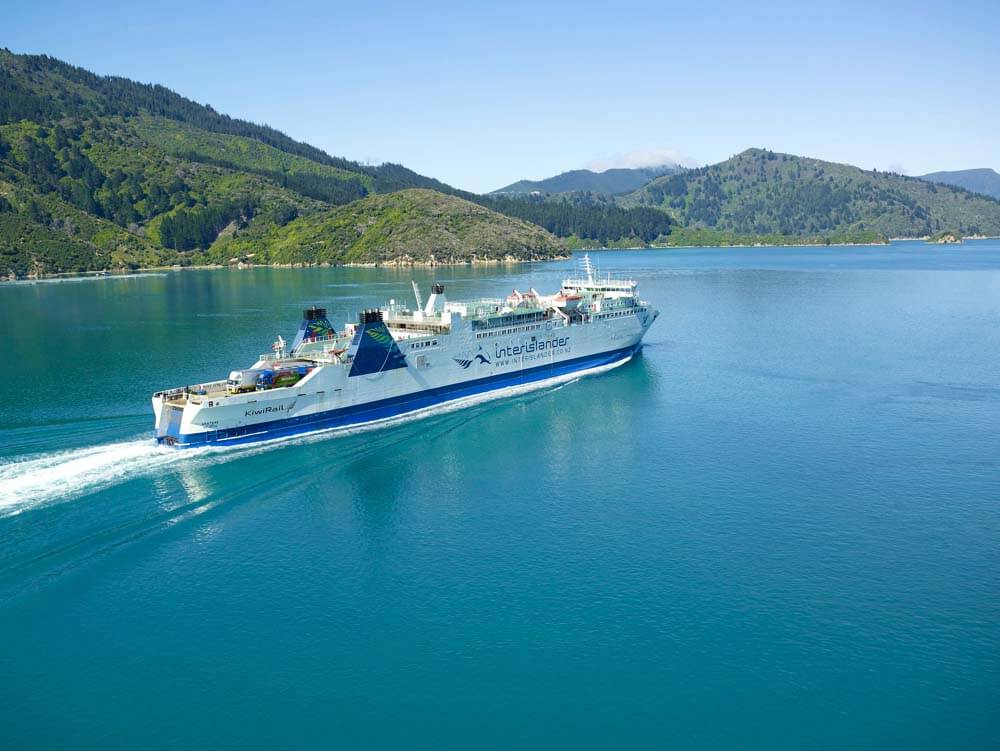The New Zealand authorities have selected a Chinese shipbuilding company to build a new inter-island ferry project, which had previously been withdrawn from a South Korean shipyard. The project has sparked controversy due to political factors, and the New Zealand government has pledged to adopt a “pragmatic solution”.

According to a statement released by New Zealand Rail Minister Winston Peters, New Zealand authorities have selected China State Shipbuilding Corporation (CSSC)’s Guangzhou Shipyard International (GSI) to build two new ferries through procurement company Ferry Holdings.
The new ferries are 200 meters long, equipped with double decks for road and rail, and can accommodate 1,500 passengers each. They are expected to be delivered in 2029. According to the plan, the two new ferries will be mainly used for route operations in the Cook Strait over the next 30 years.
Ferry Holdings and GSI are currently engaged in further negotiations regarding the shipbuilding project. Key terms of the agreement, including the fixed price for the vessels, have been confirmed. The contract is scheduled to be finalized and details announced before the end of the year. Port agreements signed with New Zealand’s CentralPort and Marlborough Port will also be announced accordingly.
Winston Peters stated: “New Zealand authorities are committed to securing the best possible outcome for New Zealand taxpayers. GSI’s professional qualifications, technical capabilities, and production capacity fully demonstrate the authorities’ high level of confidence in the ferry renewal program.”
According to reports, New Zealand’s ferry renewal program, launched in 2020, has cost approximately $380 million to date. The project originally planned to use a traditional ferry design, but was later changed to a hybrid design that can use both electricity and diesel. In 2021, the ferry order (iReX project) was awarded to HD Hyundai Mipo, but the order from the Korean shipbuilder was subsequently canceled.
New Zealand authorities reportedly canceled the order because the project cost had risen more than fourfold, leading them to withdraw funding support. After multiple rounds of negotiations between the two parties, the decision to cancel the order was ultimately made.
In August 2025, New Zealand’s national railway group KiwiRail and HD Hyundai Mipo completed liquidated damages negotiations regarding the cancellation of the ferry order, an announcement that marked the official termination of the shipbuilding project between the two parties.
Including compensation and the advance payment already made, HD Hyundai Mipo ultimately received $220 million from the shipowner. This sum represents over 70% of the order’s $370 million value, with the per-vessel construction cost at the time amounting to approximately $185 million.
Just two months later, New Zealand authorities announced they would proceed with the “practical solution” proposed in May 2020, committing to a fixed-price project completion and ensuring delivery by 2029. This means the two new ferries will be built according to traditional ferry designs.
Earlier this year, following the cancellation of the iReX project and the original shipbuilding plan requiring a new wharf, the New Zealand government established a dedicated agency to oversee the Cook Strait ferry renewal program. However, as the new vessels will be larger than the two existing ferries, port infrastructure upgrades remain necessary.


